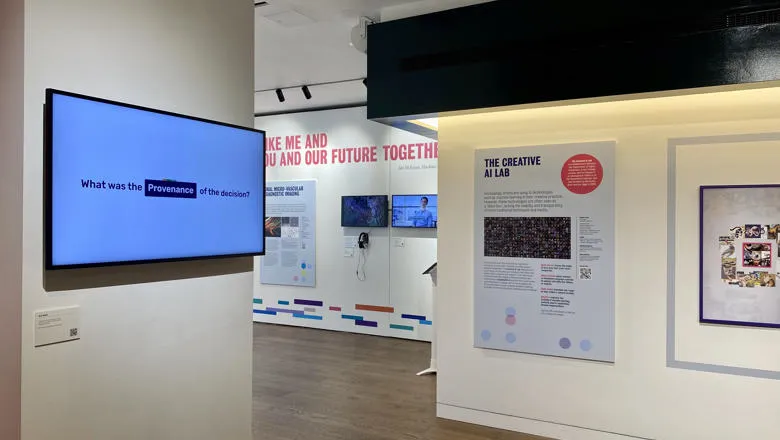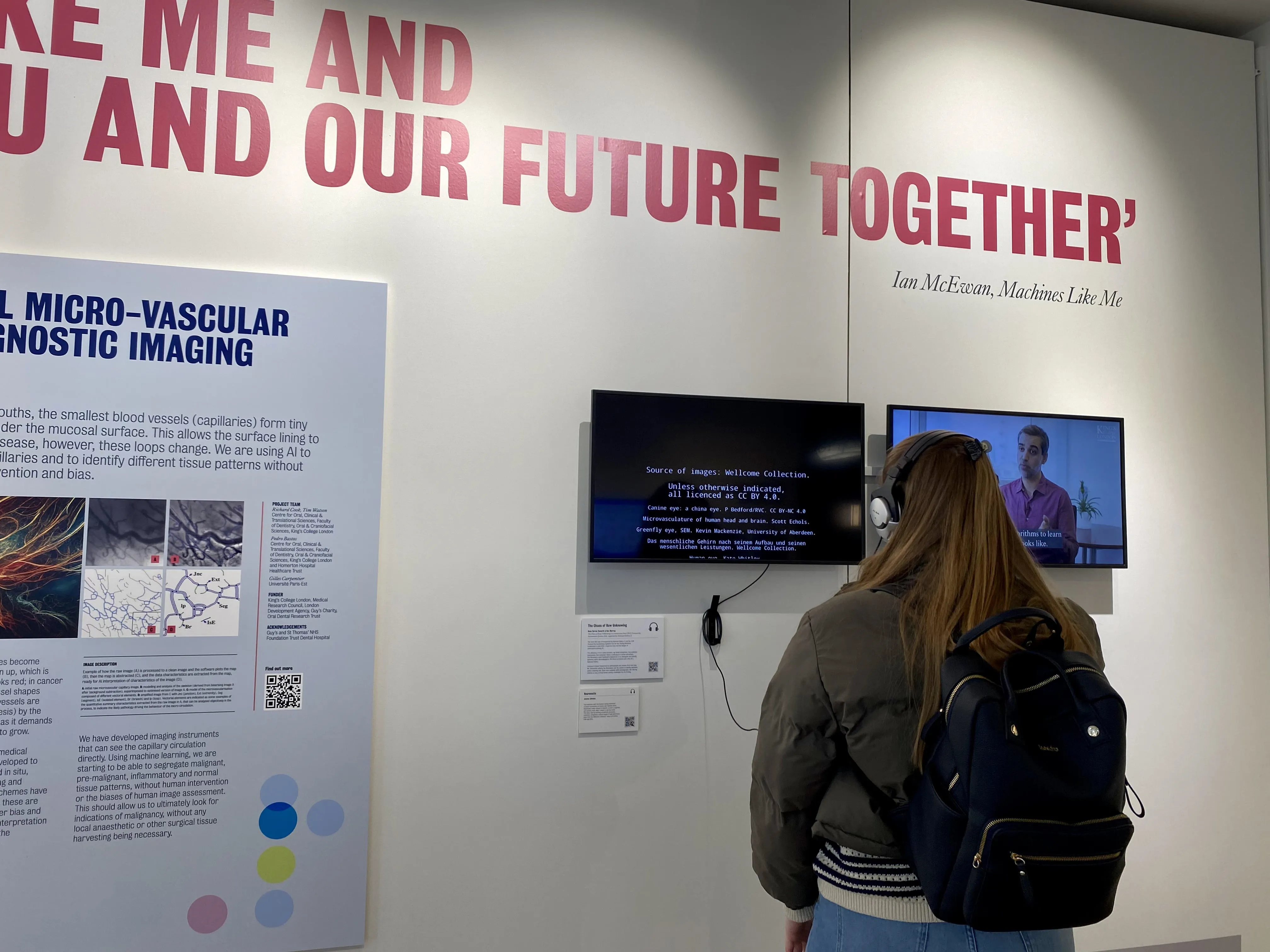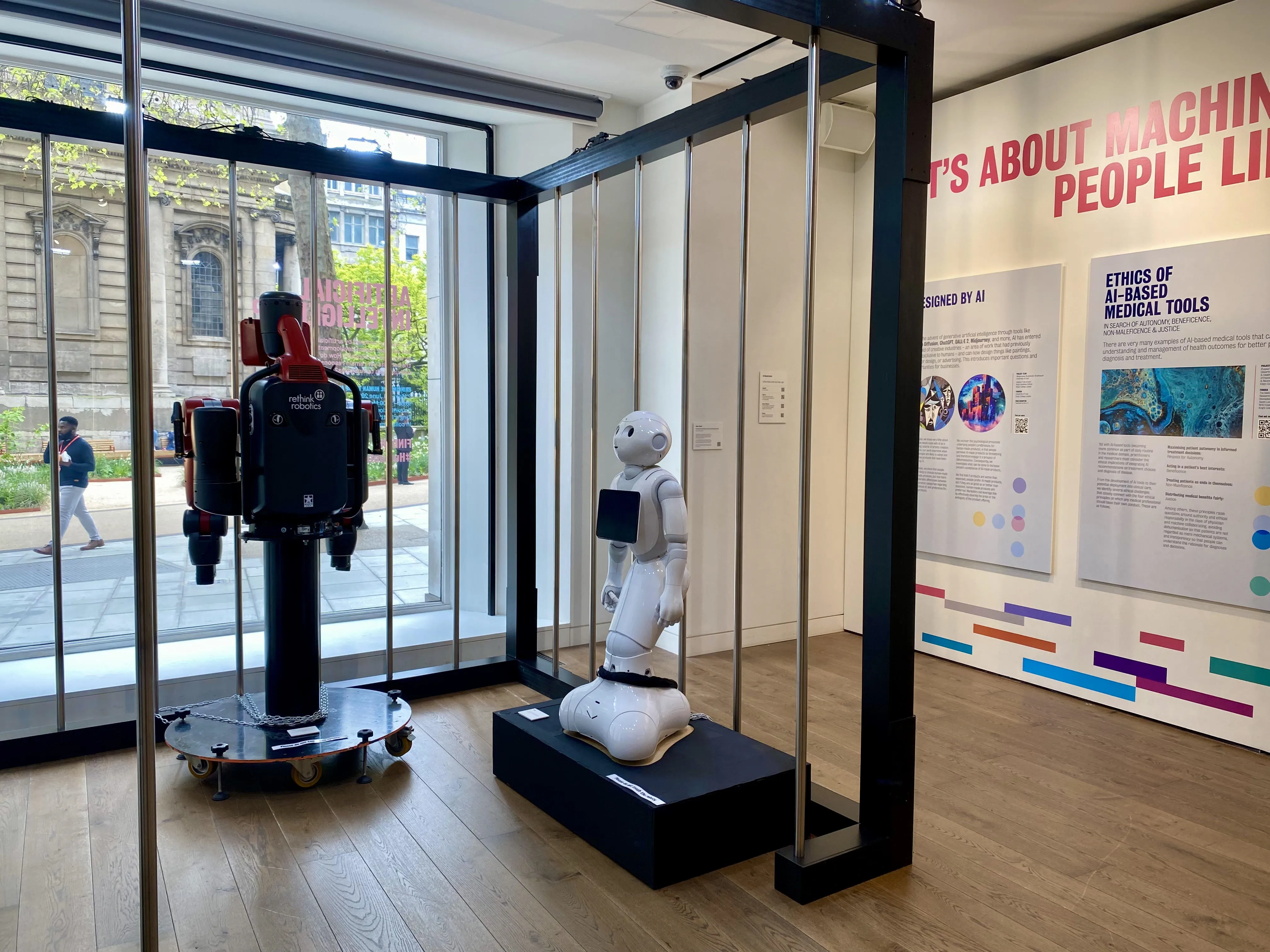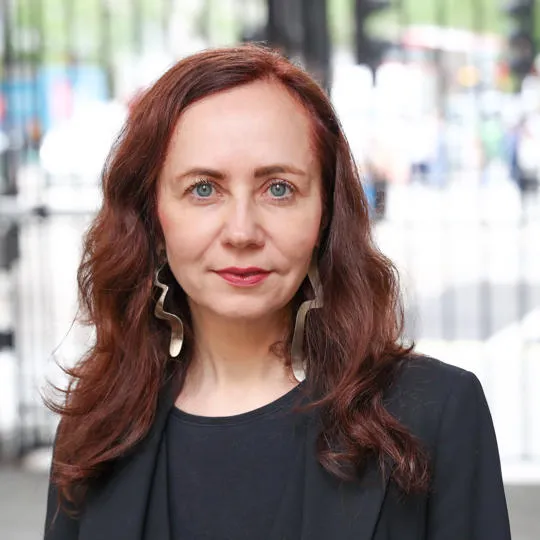‘We noticed that artists approach AI differently and explore sides that are usually not seen. Now that AI is becoming part of everyday life and large technology companies are shaping the way we see AI, the different ways artists explore this technology are tremendously important. Artists can show us different aspects of AI technologies. Together with cultural institutions, they play a pivotal role in offering a space for ethical and societal critique and reflection, which allows us to tackle the existing gap in media literacy around AI. The aim of the lab is to surface artistic approaches to technical knowledge regarding AI in order to overcome the existing ‘black-box’ narratives’.
Dr Mercedes Bunz, Professor in Digital Culture and Society, Department of Digital Humanities
11 May 2023
Arts & Humanities projects in 'Bringing the Human to the Artificial' exhibition
Two projects from the Faculty of Arts & Humanities, Creative AI Lab and Neuromatic, are showcased in ‘Bringing the Human to the Artificial’ exhibition exploring multiple perspectives on AI at King’s.

Bringing the Human to the Artificial, an exhibition presented by the King’s Institute for Artificial Intelligence in collaboration with King’s Culture, showcases two AI-centred projects from the Faculty of Arts & Humanities: Creative AI Lab and Neuromatic.
Creative AI Lab, co-founded in 2019 in collaboration with Serpentine’s R&D Platform by Dr Mercedes Bunz, Deputy Head of the Department of Digital Humanities and Professor of Digital Culture and Society, explores the use of AI in creative practice. Collaborating with artists who engage in these techniques, the project investigates how they make AI technologies more visible and accessible to the public. Tools and resources for artists, engineers, curators and researchers interested in incorporating artificial intelligence, such as machine learning, into their practice are accumulated in the growing database. Creative AI Lab highlights the importance of urgently needed AI literacy, which can be acquired through interacting and engaging with technical aspects of AI systems.

Neuromatic, a short film by Joanna Zylinska, Professor of Media Philosophy + Critical Digital Practice, is a poetic commentary on human and machine vision. It invites viewers to explore what it means to see the world both on a cognitive and sensory level. The video shows medical images of eyes and brains from the Wellcome Collection, remediated using an AI-driven GAN algorithm.
‘In my work, I am interested in the technical constitution of the human, that is in how technology – from its early forms, such as flint tools and fire, through to the wheel, the Internet and, last but not least, AI – has been fundamental to our existence, identity and self-knowledge. The Neuromatic video I am showing in the exhibition offers a poetic commentary on the developments in machine vision. It also asks questions about what seeing and thinking mean in the age of artificial intelligence, when human vision and human behaviour are being increasingly automated. In the context of the exhibition, ‘Bringing the Human to the Artificial’, my idea is to show that art, artifice and artificiality have always been part and parcel of human emergence and experience in the world – but also that problems of human existence in the age of AI require the responsible work of ethics, politics and policy, and not just a series of quick techno-fixes’.
Professor Joanna Zylinska, Professor of Media Philosophy + Critical Digital Practice, Department of Digital Humanities

Bringing the Human to the Artificial includes both fixed and scheduled exhibits, running until 30 June 2023 at the Arcade, Bush House. The exhibition will be followed by ‘AI: Who’s looking after me?’, a season at Science Gallery London exploring the ethics of human relationship with artificial intelligence. The free exhibition and public events programme will be open to the public from 21 June 2023 to 20 January 2024.


